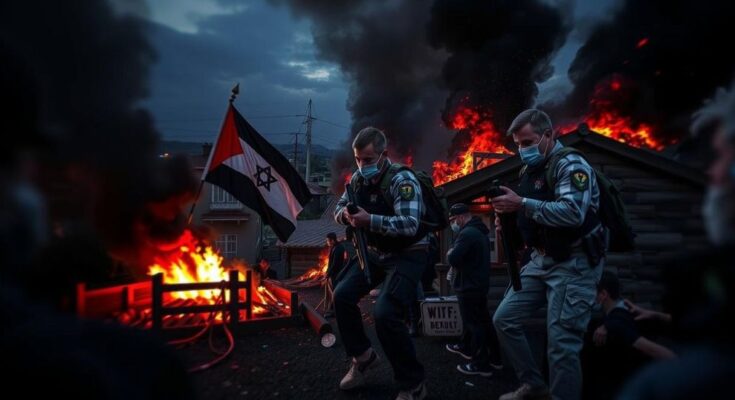The assassination of Yahya Sinwar, Hamas’s political leader, may provoke a more aggressive Israeli approach to the Gaza conflict, consolidating Netanyahu’s power and diminishing prospects for negotiations. With key figures eliminated, the focus shifts toward military actions against threats like Hezbollah and Iran, amid a complex political landscape within Israel that could impact Netanyahu’s future support.
The assassination of Yahya Sinwar, the head of the Hamas political bureau, marks a pivotal moment in the ongoing Gaza conflict and could signal a shift toward a more aggressive Israeli military policy. With the elimination of key Hamas leaders, including Ismail Haniyeh and Hassan Nasrallah, the possibility of negotiations and ceasefires appears diminished, leaving Israel in a position to pursue more ambitious objectives. Prime Minister Benjamin Netanyahu may leverage this development to enhance his domestic political standing while simultaneously addressing perceived external threats posed by groups such as Hezbollah and Iranian interests. Netanyahu’s strategy appears not focused on ceasefire discussions, especially with the impending U.S. presidential elections. Within this context, he may prioritize military operations against Iran and Hezbollah, capitalizing on the perceived window of opportunity created by Sinwar’s assassination. Consequently, discussions regarding the potential reinstatement of the Palestinian Authority in Gaza are likely to take a backseat, as the urgency of military action supersedes diplomatic considerations. Historically, Israel’s political landscape has been shaped by a mixture of extremist and moderate factions that often coalesce around the central narrative of conflict. Since the assassination of former Prime Minister Yitzhak Rabin, the political polarization within Israel has only intensified. The rise of Netanyahu against a backdrop of escalating violence highlights the paradox of his enduring leadership amidst national turmoil. Netanyahu currently governs with the support of a conservative coalition, which includes far-right elements and a newly emerging moderate right. This moderate faction has proven pivotal in securing legislative support for policies that reinforce the Jewish character of the state, indicating a shift in political dynamics and electoral strategies. The flexible right, which encompasses a broader spectrum of Israeli society, has adapted to political realities, demonstrating decreased ideological rigidity while still holding significant sway over electoral outcomes. Netanyahu’s ability to effectively communicate nationalist sentiments has solidified his support base, particularly during military confrontations, reinforcing his standing despite military and political miscalculations. However, the flexible right’s support is not guaranteed indefinitely. Should the costs associated with backing Netanyahu escalate, there is a concern that disillusionment could fracture this coalition, especially in the face of retaliatory actions by Iran or heightened conflict with Hezbollah. In light of this, the current geopolitical climate presents an opportunity for a reevaluation of approaches to the Gaza conflict. The death of Sinwar could serve as a catalyst for initiating discussions on a rational diplomatic pathway, emphasizing the urgent need for peace negotiations and the conceivable establishment of a two-state solution before an escalation in violence renders such efforts futile.
The article examines the implications of the assassination of Yahya Sinwar, the leader of Hamas, within the broader context of the Gaza conflict. It outlines the shifting dynamics in Israeli politics as Prime Minister Benjamin Netanyahu seeks to solidify his power and address national security concerns in the region. Additionally, it highlights the historical context of the conflict, the emergence of extremist factions, and the evolving relationships within Israeli political coalitions, all while speculating on the potential future strategies of Israel following this significant event.
In conclusion, Yahya Sinwar’s assassination has provided a new justification for Israel’s aggressive military posture while raising challenges for potential diplomatic resolutions in the region. Netanyahu’s political strategy reflects a precarious balance, supported by an evolving coalition that may prove vulnerable. The overarching need for rationality in addressing longstanding conflicts is more pressing than ever, particularly as opportunities to pursue a peace agreement diminish amidst intensifying violence.
Original Source: www.dailynewsegypt.com




